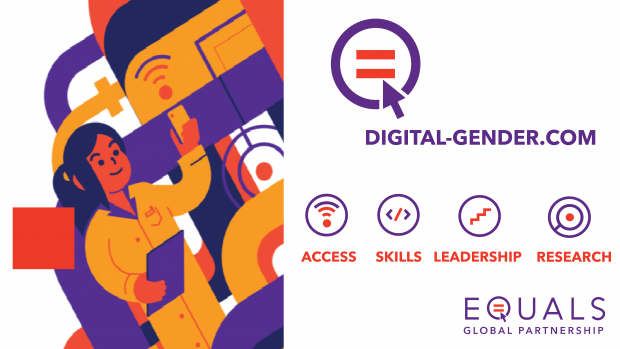Today, the EQUALS Partnership officially launched the microsite of the research group's report titled, Taking Stock: Data and Evidence on Gender Equality in Digital Access, Skills, and Leadership, which highlights the implications of persistent gaps across different facets of digital technologies and features a compilation of case studies written by more than 25 leading experts and researchers about how technology impacts women and girls in various contexts, including jobs and wages, security and privacy, cyber threats, and new technologies such as artificial intelligence (AI).
The microsite was created to offer a more reader-friendly and visually appealing option to the traditional report. In addition to having different chapters of the report easily accessible, the microsite features interactive data dashboards to better visualise gender-disaggregated data from the report.
Visit the Microsite: https://www.digital-gender.com/
Follow @EQUALS and @UNUMACAU on Twitter and join the conversation by using the hashtag #EQUALSinTech.
EQUALS is a global partnership of corporate leaders, governments, non-profit organizations, communities, and individuals around the world working together to bridge gender digital inequalities. EQUALS was founded in 2016 by five partners: the International Telecommunications Union, UN Women, the International Trade Centre, GSMA, and the United Nations University. The Partnership works to reverse the increasing gender digital divide, and to close the gap by 2030 – supporting UN Sustainable Development Goal 5 by empowering women through their use of information and communication technologies.
Supporting the work of the three EQUALS Coalitions (Access, Skill, and Leadership), the Research Group is composed of experts that focus on generating knowledge about the existence, causes, and remedies for gender tech inequalities, and on motivating key stakeholder groups, including private sector companies, government departments, regulatory agencies, and academia, to collect and share gender-relevant data.




